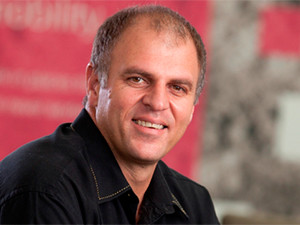
The loss of the Eskom contract is expected to have a "massive" impact on T-Systems South Africa, which counted the power utility as its biggest client - by some margin - out of the top six companies that account for 80% of its annual revenue.
At the end of last month, T-Systems was informed it did not make the short-list for the renewal of the five-year Eskom contract, said to be worth about R500 million a year. It is understood some part of the contract will be moved in-house by Eskom, while the remainder will be awarded to a new service provider.
ITWeb also understands Eskom issued a request for proposals earlier this year for the contract's renewal, attracting bids from big players such as Dimension Data, EOH and Business Connexion. The successful bidder will be announced in January.
Yesterday, T-Systems staff members were briefed by the Eskom's management about how they will be affected by the contract loss. A well-placed source says 434 employees will be transferred to Eskom, as well as absorbed by the as yet unannounced winning bidder, when the contract moves away from T-Systems next year.
At this stage, T-Systems has declined to comment on the financial impact the loss of the Eskom contract will have on its bottom line, and has also refused to discuss whether any job losses are expected.
In a brief statement this morning, the company said: "In line with our previous statement, we will continue to follow due process. We are, however, not able to provide further comment as the process is still ongoing. Once we are in position to provide more clarity, we will do so."
Long-term plans
While analysts have opined the contract loss is a "massive blow" to the outsourcing giant, T-Systems says it has, since 2013, been building its long-term business plans, irrespective of Eskom's decision. "Our strategy is built around shared business platforms that show exciting growth opportunities for our employees, customers and our country."
Clinton Jacobs, BMI-TechKnowledge IT sector business manager, says the company finds itself in a very difficult position. "There is no doubt that the loss of Eskom is a massive blow for them, and it's difficult to see how they will recover, as this was by far their largest client."
But, says Jacobs, T-Systems remains a good business, and the company will most likely rebase its income streams and build from there. "It is a big challenge when you lose your biggest client, but somewhat of a trend forming among big players towards insourcing. A good example is Absa's contract with Gijima."

In 2012, Absa announced it will insource about 50% of its desktop services contract that was held by Gijima. The company continues to deliver services on the remainder of the contract. This move prompted the transfer of 200-plus Gijima staff, specifically dedicated to this contract, to Absa, as permanent employees.
Jacobs says, while managed services are still growing strongly in SA, larger companies are increasingly seeking to bring these in-house as they look at aspects such as cost control, intellectual property management and skills.
Theoretically simple
Jacobs says companies are often criticised for not managing their risk adequately, as in the case with T-Systems, which earns the majority of its revenue from a handful of big clients. "Theoretically, it is easy to says that companies must spread their risk, but the IT spend in SA is very concentrated," he explains.
Jacobs notes a few hundred top ICT companies in SA account for almost a third of the country's entire IT spend, making it difficult for managed service providers to steer clear of a few huge contracts, and spread their risk over a larger number of smaller deals. "It's really a double-edged sword. You want the big deals if you want to grow, but these deals come with a huge risk too. T-Systems is not unique; all top systems integrators want that big spend."
But he, points out, T-Systems was around long before the Eskom contract, and remains a strong business.
Absa investment analyst Chris Gilmour agrees the loss of the contract could be a huge blow to T-Systems. "There needs to be a broad spread of interest. Having a small base of huge clients is risky. The loss of even a single client is not good then, and further increases your risk significantly."
In an interview earlier this month, T-Systems MD Gert Schoonbee stated the era of the "megadeal" is over, as clients are increasingly shying away from long-term contracts and being locked into these. He also described the Eskom deal as one of the most challenging contracts with which to achieve stability in terms of cost and service delivery.
Share